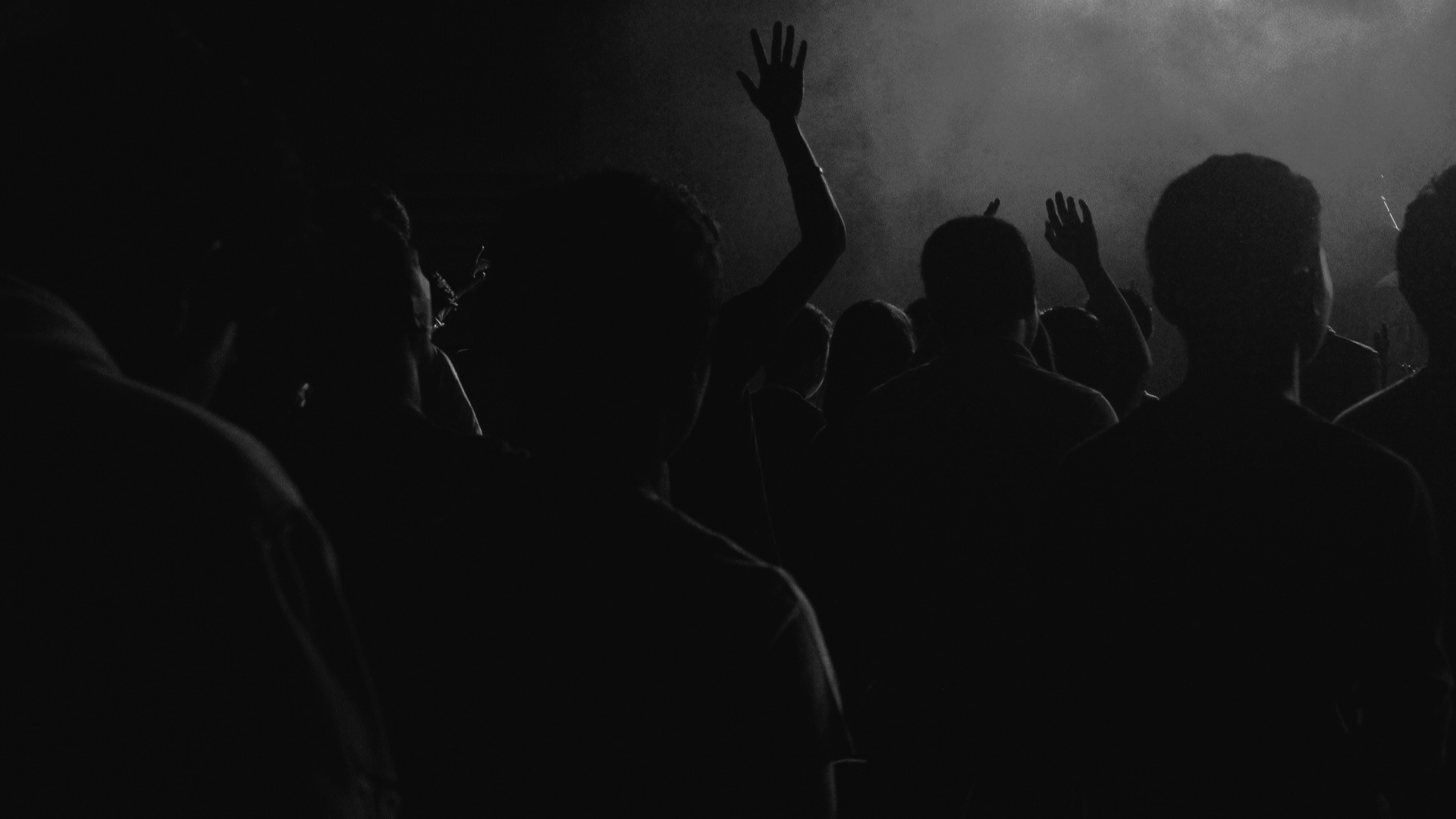


Awareness is not only the job of an awareness team or the guests, but this responsibility is carried by everyone else. As part of the organisational team, you have a lot of influence, because you can significantly shape the space and structures of your event. Below you find a checklist to guide you in planning.
Awareness is not only the job of an awareness team or the guests, but this responsibility is carried by everyone else. As part of the organisational team, you have a lot of influence, because you can significantly shape the space and structures of your event. Below you find a checklist to guide you in planning.
Your space, your event, your possibilities! The organisation and form of the evening is in your hands.
In the team there are shared tasks and shared responsibilities. It is important that the individual areas such as admission/door, cash desk, organisational evening management, bar staff, organising crew and awareness team, etc. work closely together. Preparation and agreements are important here to clarify a simple way of dealing with certain situations. These include, for example:
Affected people are involved in decisions – no acting over people’s heads, wishes, and needs!
Care is taken to ensure that the person concerned determines what will support them in the moment and how they can be helped.
If a person concerned is looking for support: offer a quiet place, act confidentially and calmly, offer support, and allow room for any feelings that may arise.
When the perpetrator of violence is approached (if wished by the person affected):
Engage in conversation about the incident: Ask questions, listen, deal with the incident by talking about other ways of behaving.

Do not engage in trivialisation, downplaying and discussion!
In case of stubbornness or pertinence, refer to permanent consequences (expulsion, a ban from the venue, reporting to the police).
For helpless and disoriented persons:
Talk to them to assess their condition. If necessary, ask friends what has been consumed.
Important here: assess whether professional help is needed (emergency doctor) and in any case move to a calmer, safer environment.
Are you an organiser or organising team and would like to learn more about awareness and how to use it at your own venue (bar, club, festival)? Then register for our training courses. We look forward to your participation and a lively exchange!
Information HERE [link to the campaign, where you will find the dates and contact address]
An awareness policy must be considered in the preparation for an event. The following points of the checklist should be included:

Self-reflection
It is worth to take a look in the mirror beforehand, for a successful event: How sensitive is the organising team to discrimination? How do we act and behave at events? How diverse is our team and can we map and understand different perspectives? For whom is our event accessible? Who feels invited, or are there obstacles excluding some guests? Hosts need to take interest in the topic of awareness. Everyone should actively engage with awareness – only then can we celebrate more safely together.
Spaces: which spaces are crucial for awareness work?
Safe Retreat
It is important for awareness work that there is a quiet place one can retreat to. A space where a person can feel safe(r) and feel (more) at ease, a so-called “safe(r) space”. In this space, people who feel uncomfortable can come to rest. Once there has been an incident and the affected has found a trustworthy contact person, they can leave the acute situation and withdraw. In this room of retreat, the incident can be talked over openly and undisturbed. The room should be free from distraction, for example loud music. It’s valuable if there is water or tea and snacks like fruits on hand.
Toilets
In addition to people who clearly assign themselves to the female or male gender, there are people who do not [queer, non-binary]. Here, the installation of all gender toilets is important to counteract discrimination against people who identify as, for example, inter- or transgender. Furthermore, a sign that informs guests about the topic of awareness can be attached in the toilet cabins since it is a place everyone uses.
Accessibility
In order for people with (physical) disabilities to have access to parties, concerts, bars and other events, the venue should ideally be barrier-free. For example, is there a ramp or lifts for people with impaired mobility? Here it helps to ask the general question: How easily accessible is the event and for whom is it not?


Awareness Information Point
So that those attending an event can be informed or have access to information regarding awareness it is advisable to place an information point. Here people can find information leaflets like flyers about the topic of discrimination or the safe use of drugs. This place can also be used as a first point of contact to the awareness team, who are present and accessible.
Awareness Team
Go to the page Awareness Team for more information on tasks and find a summary of most important facts about awareness work. The existence of an awareness team also shows that, to you as organisers of the event, the issue of awareness and discrimination is of importance. The host should be in contact with the awareness team – during an event, as well as before and afterwards. Moreover, there are the following questions: Is there a contact person belonging to the organisation team for the awareness team to turn to? During which period should the awareness team be active? Does the awareness team have domiciliary rights and can possibly deny access to particular people? Awareness work is a challenging, demanding practice that requires a lot of attention and sensitivity. It is worth to think upon recognising this work with a payment.
Awareness Trainings
Clubverstärker e.V. conducts trainings for staff working at live venues such as clubs, festivals, and bars. The aim is to sensitise the staff at the entrance and at the bar about the awareness policy and to make them capable of acting under the given circumstances. Attendees of the event perceive these people as part of the team and as contact persons.
These clubs, festivals, etc. are already taking part:
Is your team also interested? For more information and registration please contact: awareness@clubverstaerker.de


Pricing policy
Not everyone is equipped with enough money to be able to afford tickets [classism]. So that no one is excluded from an event because of little financial resources, a solidarity-based price system can be set up. One suggestion is, that people with more financial resource have the option to pay on top. This money goes into a donation pot, which is then freely available to other people when it comes to paying for the access to an event.
Another option is to recommend a price range (for instance: five to ten Euros), allowing the visitors to choose the amount they pay, depending on how much they are able to. A solidarity pricing policy also reflects an awareness that people are affected by poverty. It is also recommended that the drink at the bar with the lowest price is non-alcoholic (e.g., water).
Follow-Up Work
The keyword ‘self-reflection’ is particularly important for the follow-up work: What worked well? What problems came to light? What conflicts were present at the event and how does this influence future work and events?
